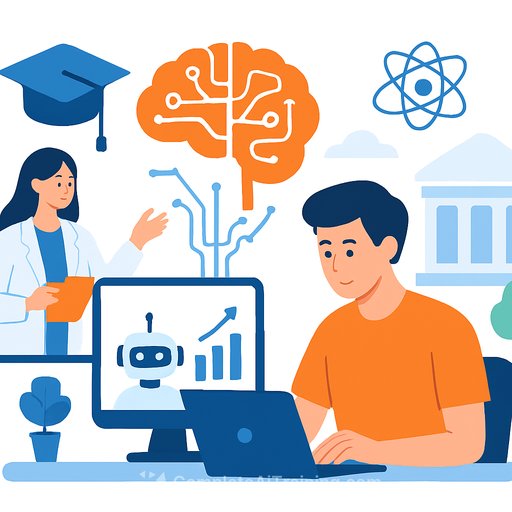Alabama puts data literacy at the core of grades 6-12
Alabama is moving early on data literacy for middle and high school students. More than 1,400 teachers are trained to weave data skills into math, science, and CTE. Students work with real datasets, study AI ethics, and build analysis skills that matter for college, the ACT Science section, and future work.
Bridging the data literacy gap
State education leaders partnered with QuantHub, a local AI and data literacy platform, to train educators and integrate data skills across subjects. The focus: gathering, analyzing, interpreting, and communicating data as a baseline competency. This cross-curricular approach strengthens academic performance and builds confidence with evidence-based reasoning.
For test prep, the alignment is clear. Data interpretation and experimental design map directly to the ACT Science section, helping students practice skills that transfer to assessments and real tasks.
Curriculum integration and hands-on learning
Teachers contextualize statistics with problems tied to students' lives and local issues. Core topics include data wrangling, visualizing trends, and responsible use of AI. Schools such as Midfield High School and Bessemer High School are early adopters, using projects to show how data drives decisions in healthcare, finance, and public services.
Educators report stronger engagement and clearer thinking when students use authentic datasets. Applied work turns abstract concepts into practical skills.
Preparing students for the AI economy
The program equips graduates with an analytical toolkit: ask better questions, test assumptions, and communicate findings. Students also study the ethics of data and AI-privacy, bias, transparency-so they can make responsible choices as creators and consumers of technology.
Empowering teachers and communities
Trained teachers gain resources that fit into existing courses without overhauling schedules. The effort is building interest in STEM pathways and inspiring students to explore technology and data careers. Parents and local leaders see a clear path to equitable opportunity through skills that matter.
What educators can do now
- Audit current units in math, science, CTE, and ELA for data touchpoints; add one dataset and one visual per unit.
- Start small: use local datasets (city budgets, public health dashboards, school athletics) for charts and claims.
- Embed AI ethics mini-lessons: privacy, bias, consent, and transparency tied to classroom projects.
- Align practice with ACT Science skills: data representation, research summaries, and conflicting viewpoints.
- Co-design cross-curricular projects (e.g., science + ELA) that end with a written or oral data argument.
- Assess with simple rubrics for question quality, method, accuracy of visuals, and clarity of conclusions.
- Provide student reflection prompts: What did the data say? What would you test next? Where could bias appear?
A model for nationwide adoption
Alabama shows how partnerships, focused training, and practical resources can modernize learning without adding new standalone courses. By investing in data literacy from grades 6-12, the state sets a clear benchmark for technology, ethics, and real-world analysis-preparing students for leadership, innovation, and informed citizenship in an AI-driven world.
Expanding teacher PD? Explore curated AI and data training by role at Complete AI Training.
Your membership also unlocks:






